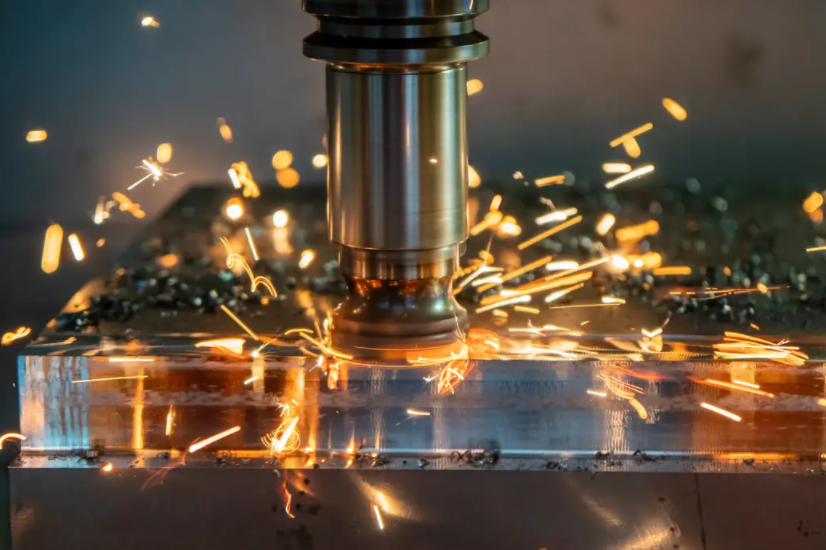The use of aluminum prototypes has revolutionized the field of engineering and manufacturing, providing a platform for innovation and development. Aluminum, known for its lightweight and versatile properties, has become a go-to material for creating prototypes that are not only cost-effective but also highly functional. This article aims to explore the various benefits and advancements that aluminum prototypes bring to the field.
One of the key advantages of using aluminum for prototyping is its remarkable strength-to-weight ratio. Aluminum is known for being incredibly lightweight while still maintaining its structural integrity. This allows engineers and manufacturers to design and create intricate and complex prototypes without compromising on strength and durability. The lightweight nature of aluminum also makes it easier to handle and transport, reducing costs and improving overall efficiency.
In addition to its lightweight properties, aluminum is highly machinable. This means that it can be easily cut, shaped, and molded into various forms and dimensions. This versatility makes aluminum prototypes suitable for a wide range of applications, from automotive parts to aircraft components. The ability to precisely manufacture aluminum prototypes ensures that the final product meets the desired specifications and requirements.
Moreover, aluminum prototypes offer excellent corrosion resistance. Unlike other metals, aluminum naturally forms a protective oxide layer when exposed to air. This layer acts as a barrier, preventing further corrosion and degradation. This makes aluminum prototypes ideal for use in outdoor and marine environments where exposure to moisture and harsh elements is inevitable. The corrosion resistance of aluminum ensures that prototypes have an extended lifespan and require minimal maintenance.
Another significant advantage of aluminum prototypes is their cost-effectiveness. Compared to other materials such as steel or titanium, aluminum is relatively inexpensive. This affordability allows engineers and manufacturers to create multiple iterations and prototypes during the design and development process. The low cost of aluminum prototypes also makes it easier for companies to test and validate their ideas without incurring significant financial risks.
Furthermore, aluminum prototypes are environmentally friendly. Aluminum is a recyclable material, meaning that it can be melted down and reused multiple times without losing its inherent properties. This recyclability reduces the overall environmental impact of manufacturing processes and promotes sustainability. By opting for aluminum prototypes, companies can contribute to a greener and more eco-conscious future.
In recent years, advancements in technology have further enhanced the capabilities of aluminum prototypes. Computer-aided design (CAD) software and numerical control (CNC) machines have revolutionized the prototyping process. CAD software allows engineers to create detailed and precise designs, while CNC machines enable the automated and accurate manufacturing of aluminum prototypes. These technological advancements have significantly reduced production time and increased the efficiency of the prototyping process.

Additionally, the emergence of additive manufacturing, also known as 3D printing, has opened new possibilities for aluminum prototypes. 3D printing allows for the creation of complex geometries and intricate designs that would be difficult or impossible to achieve through traditional manufacturing methods. This groundbreaking technology has enabled engineers and manufacturers to push the boundaries of innovation and create prototypes that were once thought to be unfeasible.
In conclusion, aluminum prototypes have revolutionized the field of engineering and manufacturing. Their lightweight properties, machinability, corrosion resistance, cost-effectiveness, and environmental friendliness make them an ideal choice for creating functional and innovative prototypes. With advancements in technology, such as CAD software, CNC machines, and 3D printing, the capabilities of aluminum prototypes continue to expand, further driving innovation in various industries. As we look to the future, aluminum prototypes will undoubtedly play a pivotal role in advancing engineering and manufacturing processes.
-

- high precision die-casting steering wheel for automotive
-

- Ανταλλακτικά UAV με χύτευση με χύτευση thixomoolding από κράμα μαγνησίου
-

- Magnesium alloy die-casting Auto parts Front bumper Anti-collision beam
-

- Ποδήλατα για παιδιά Παιδικά Ποδήλατα για Παιδιά 3-16 ετών /OEM Baby Children Cycle Kids Mountain Bicycles 2022
-

- Ο κατασκευαστής χύτευσης OEM παράγει αυτόματο ταμπλό από κράμα μαγνησίου
-

- Μέρη και εξαρτήματα χύτευσης από κράμα μαγνησίου για ηλεκτρονικά ποδήλατα

 0086-750-5616188
0086-750-5616188 +86 13392089688
+86 13392089688 sales@zhongmei-tech.com
sales@zhongmei-tech.com







